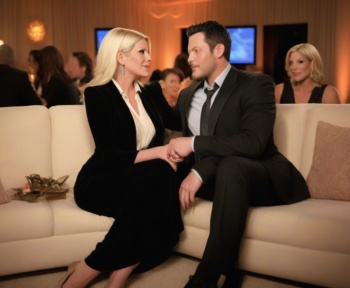Elon Musk, the innovative CEO of Tesla, recently made headlines with the debut of several cutting-edge autonomous technologies, including the much-anticipated Cybercab and the Tesla Optimus personal assistant robot. The event, named “We, Robot,” was hosted at Warner Bros. Studios and served as a platform to showcase these advanced technologies.
The Cybercab stands out as one of Tesla’s most thrilling developments. This fully autonomous vehicle lacks traditional controls like a steering wheel and pedals. During the occasion, attendees had the opportunity to experience the Cybercab firsthand, with Elon Musk making a grand entrance in the vehicle. Set to be released just before 2027, the Cybercab is priced under $30,000, targeting affordability to make self-driven transport more accessible.
Also featured at the event were Tesla’s Optimus robots, which caught the eye of many as they served beverages and interacted with guests, setting a scene reminiscent of the high-tech world portrayed in “Westworld.” These robots are designed to handle a variety of tasks, ranging from service roles to babysitting, hinting at their broad potential within the realm of artificial intelligence.
Adding to the surprise was the introduction of the Robovan, a large autonomous vehicle capable of carrying 20 individuals. Like the Cybercab, this vehicle aims for full autonomy and could significantly transform public transport by enabling large-scale, driverless commuting options.
Throughout the showcase, Elon Musk emphasized the importance and immediacy of moving towards a future dominated by autonomous technology. He shared that the venue featured 50 fully autonomous vehicles, including model Ys alongside the Cybercab, underscoring Tesla’s dedication to pioneering within the tech sphere.
The launch of these innovative products brings to light multiple societal and infrastructural questions. Issues such as integration with current road systems and potential adjustments to traffic regulations are now pressing. Furthermore, while the automation might displace some jobs, it could also spawn new employment opportunities within AI and related tech fields.
The public’s response to such trailblazing technologies was polarized. Many attendees of the event praised Tesla’s forward-thinking approaches, admiring the blend of technology and practical application. Nevertheless, there remains a degree of skepticism regarding the safety and reliability of fully autonomous vehicles.
Experts within the industry remain optimistic about the evolution of driverless technology, citing recent advancements in AI and sensor capabilities that allow vehicles to autonomously navigate intricate environments. Nonetheless, they also highlighted that achieving broad acceptance of these innovations will necessitate substantial investments in infrastructure and new regulatory measures.
As driverless technology gains traction, ethical issues also come into play, particularly concerning liability and decision-making in scenarios typically requiring human judgment. These considerations underscore the need for well-thought-out frameworks to address the moral impacts of autonomous vehicles.
In conclusion, the introduction of Tesla’s driverless Cybercab, the personal assistant robot Optimus, and the Robovan at Elon Musk’s recent event marks a significant advancement towards an autonomous future. Although challenges remain, the potential benefits of these technologies are substantial, positioning Tesla as a leader in the future of both transport and broader technological applications.




